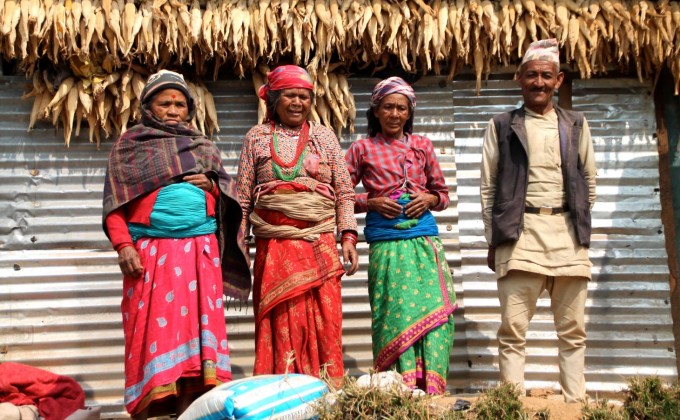
Nepal

2017 -2021

40,000 people are direct participants in the project
285,910 people were reached by the tools generated by the project

- Centre for Law and Democracy
- Young Innovations
- Freedom Forum

CAD$ 4,795,702 (Global Affairs Canada)
CAD$ 268,427 (CECI)
 © Laurine Klein
© Laurine Klein
The lack of access and use of integrated technologies in governance and social accountability in Nepal is a major constraint to people’s meaningful participation, to voice their interest and act collectively. Institutional mechanisms, infrastructures and the use of technology are either underdeveloped or underutilized as potential support systems for meaningful participation. The approach of the Susasan project is to capitalize on the availability of integrative technologies in order to improve governance transparency at the local level and boost local community groups’ ability to press for inclusion in the democratic decision-making process.
CECI is working with municipalities in order to help them acquire and become familiar with integrated technologies. These technologies allow for data to be openly available to citizens and civil society, so as to increase transparency at the local level.
Overall 24 techno-hubs will be built in the project. The first techno-hub that was built in Sanfebagar, helped that municipality become the first open government in Nepal. In the first two weeks more than 300 people visited the space. In this time, more than 30 people used the computer station to access information on recent municipal decisions, understand how the budget is allocated and find points of interest such as medical services and business service, among other types of information made available by the municipality.
CECI is also working with organizations with a mandate of improving the lives of women and other marginalized groups. Building the capacity of these organizations to understand and interpret open municipal data is essential for them to advocate on behalf of the groups they represent. Through this project, CECI is training civil society organizations on demystifying budgeting to help them gain a better understanding of the decision making process. It is also training them on data collection and the use of complaints and redressal mechanisms.
The project supports 13 local groups in Bannigadhi Jayagardh Municipality, in partnership with Malika Development Organization, in developing women's leadership and good governance in collaboration with the municipality. The project provided training on capacity building and leadership development to community-based civil society organizations, including the Himal Cooperative. Ms. Nanda Bohora, vice president of the cooperative, said:
" I participated in the capacity building and leadership development training, and the training was really productive. We were able to express ourselves clearly in the community. I used to be the treasurer of the group, but with my increased confidence, I became the president. Now I even take on the role of chair of the consumer-trices committee. Without the support of the Susasan Project, I would not have been able to explore myself and become what I am today ".
By using both a supply-side and demand-side approach, the project aims to increase the empowerment of women and men, girls and boys, and marginalized groups, in order to increase their engagement in the democratic process, and enjoy and exercise their human rights in Nepal.
Impact
Of the 285,910 people participating in the project, 168,064 were women from marginalized groups and 185,000 were youth. These people now have better access to public resources and have gained the confidence to process and engage in public forums and communicate their rights and entitlements to use and claim them properly.
Community and civil society organizations have strengthened their technological capacity to engage with the women's groups that comprise them. Mentoring, coaching, training, formal and informal digital literacy courses, and awareness campaigns on the importance of technopoles and technology have helped build the capacity and interest of women's groups in using technology. The project evaluation showed that about 93% of the targeted women's groups have access to and use the technology tools, and 95% reported that the tools have played an important role in interacting with local governments and have helped shape local decision-making processes.
In addition, 95% of project participants believe that the Susasan tools introduced play a key role in creating interaction between citizens and local governments. Similarly, the technology tools have significantly helped local governments to deliver public services and they are now proactively disclosing their data and information through technology.
66 techno-hubs have been established
200 civil society and community organizations have been supported
265 896 people are now using technology for good governance